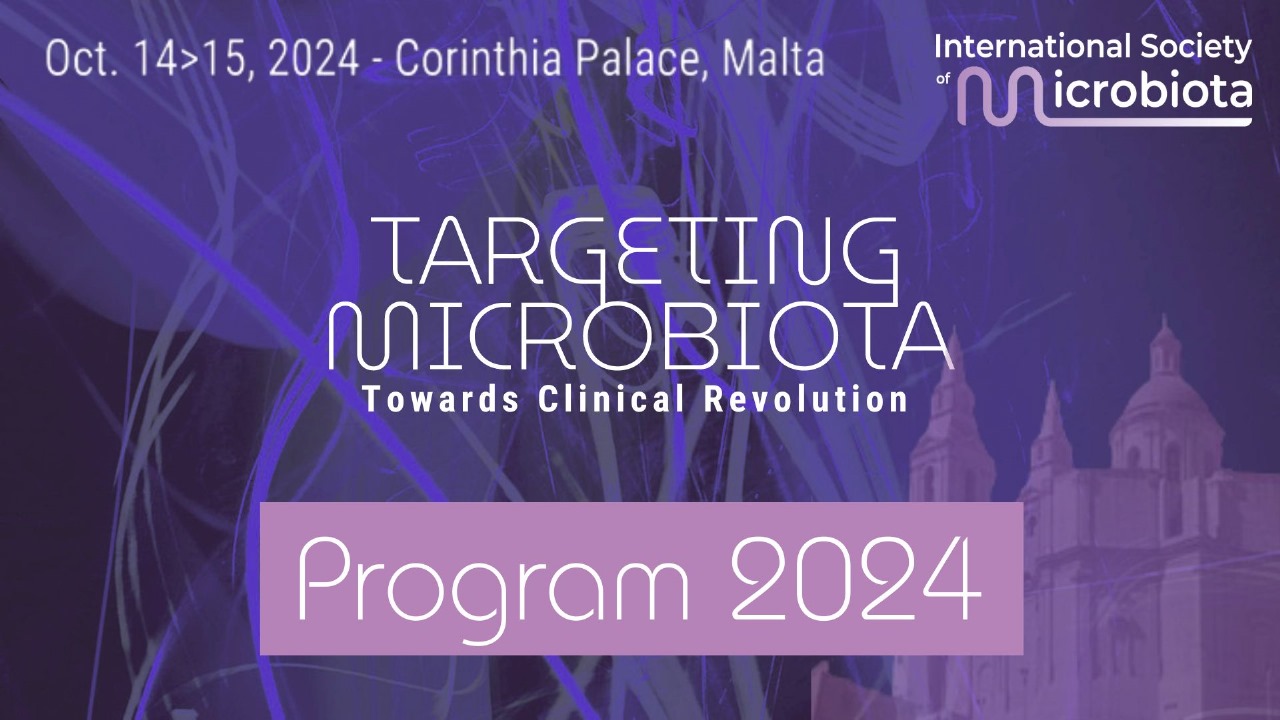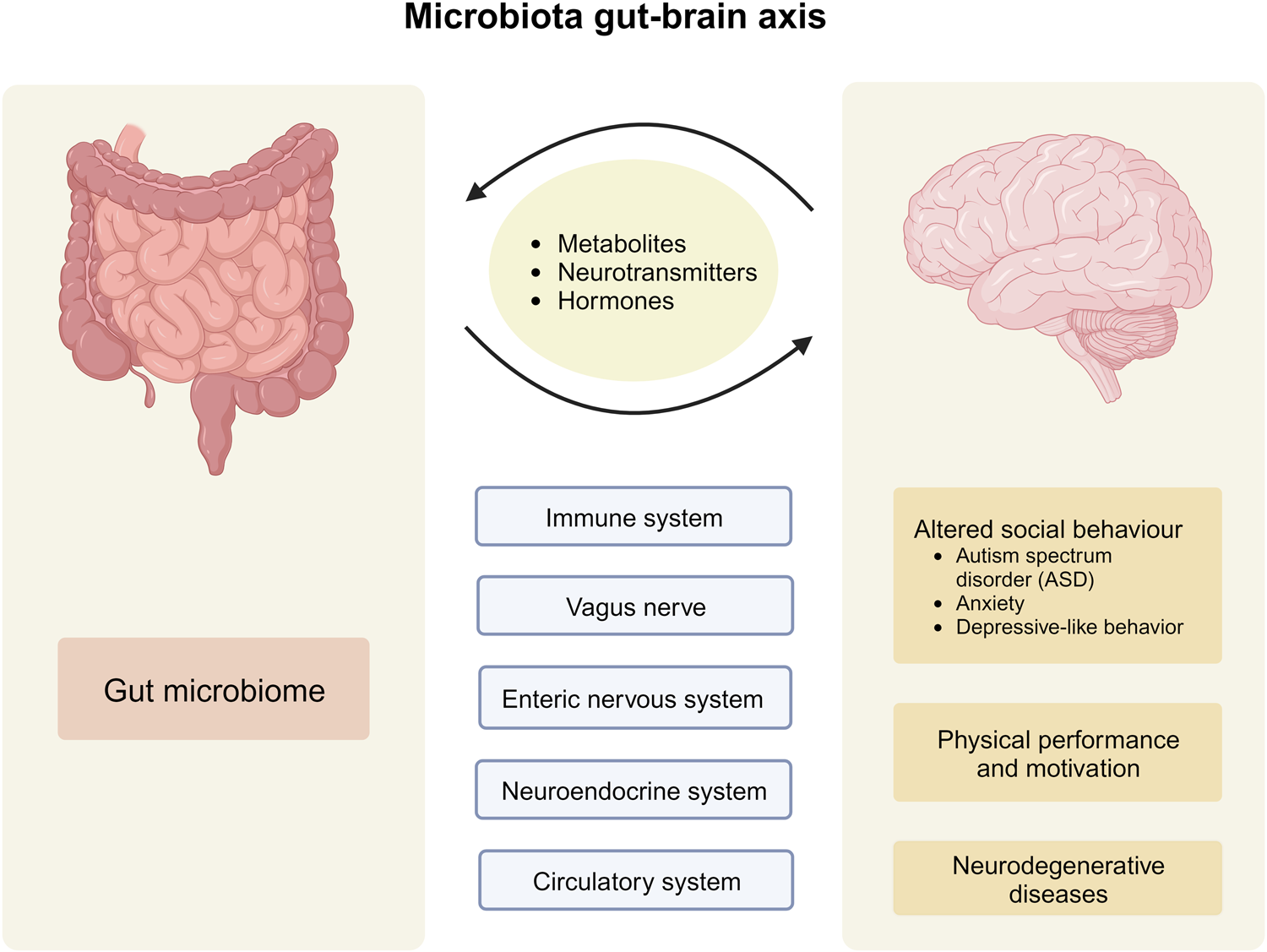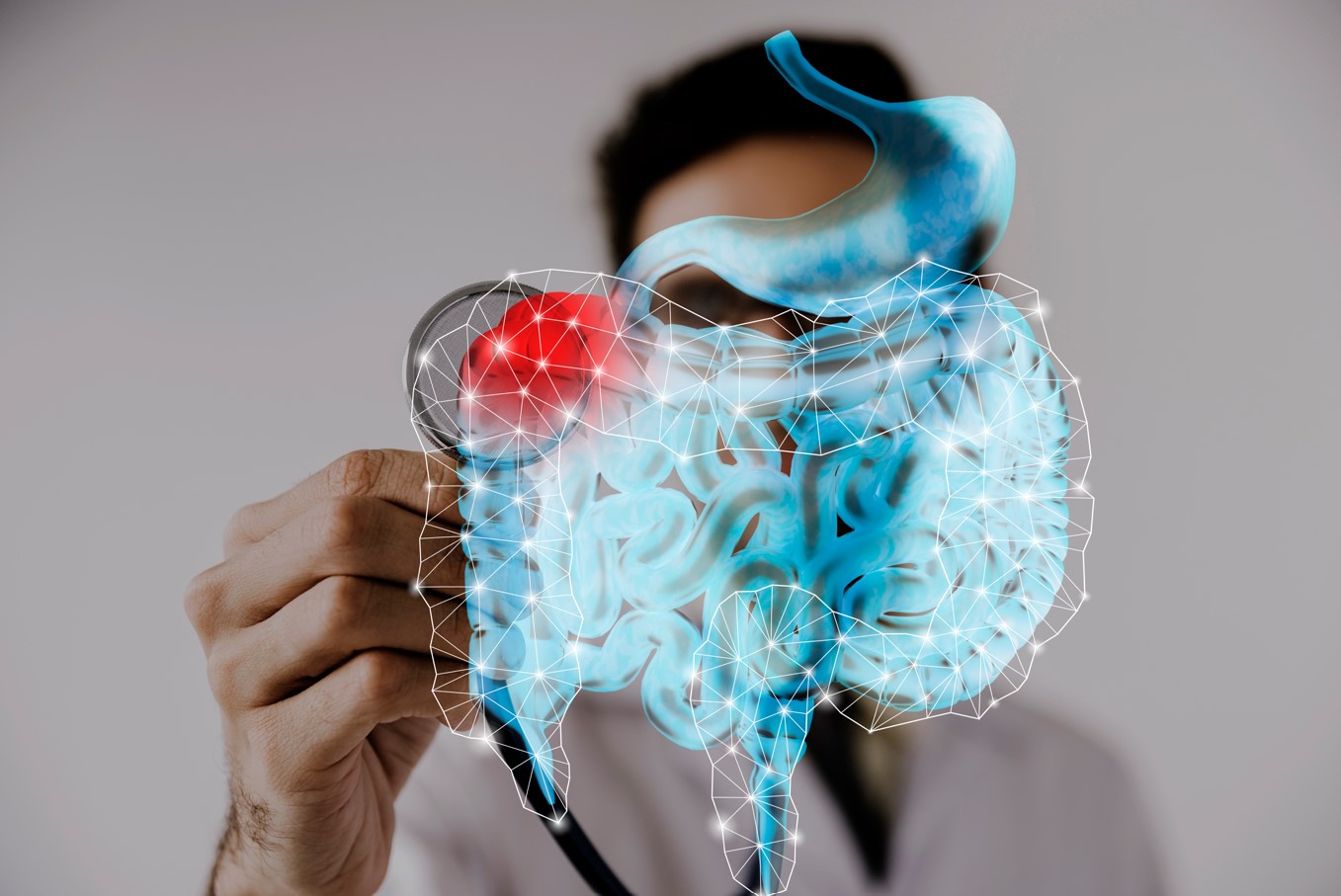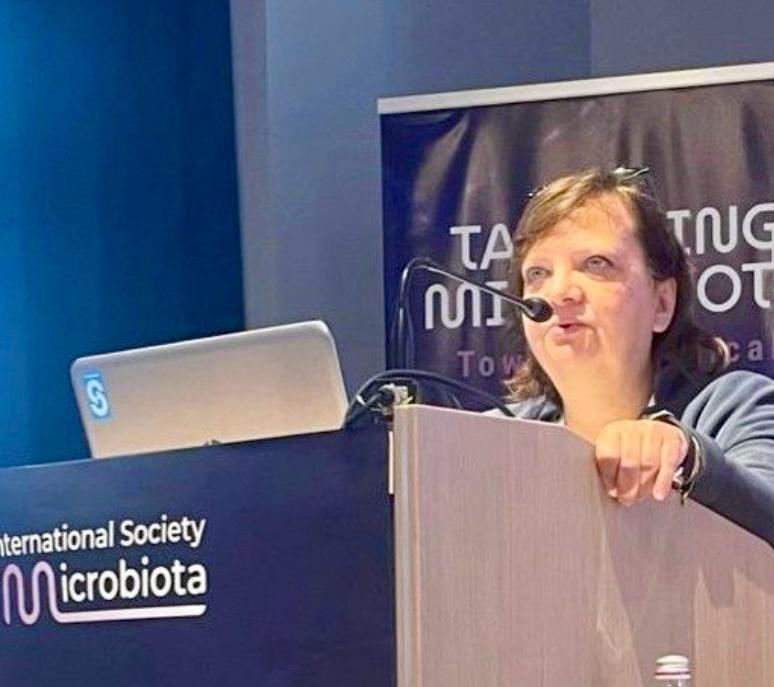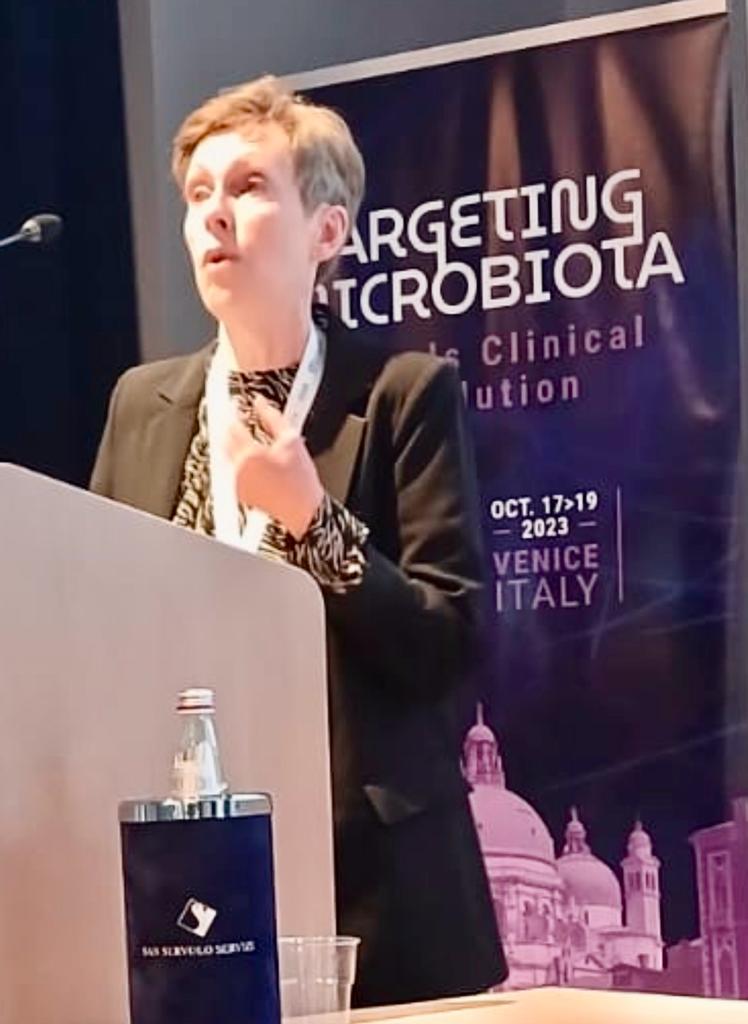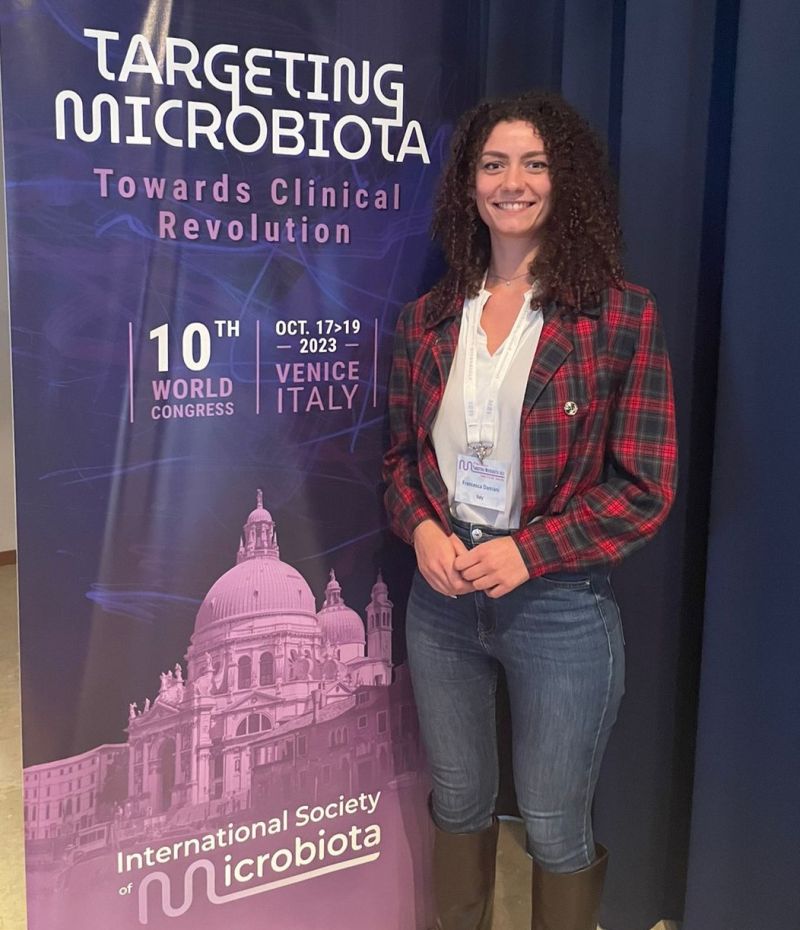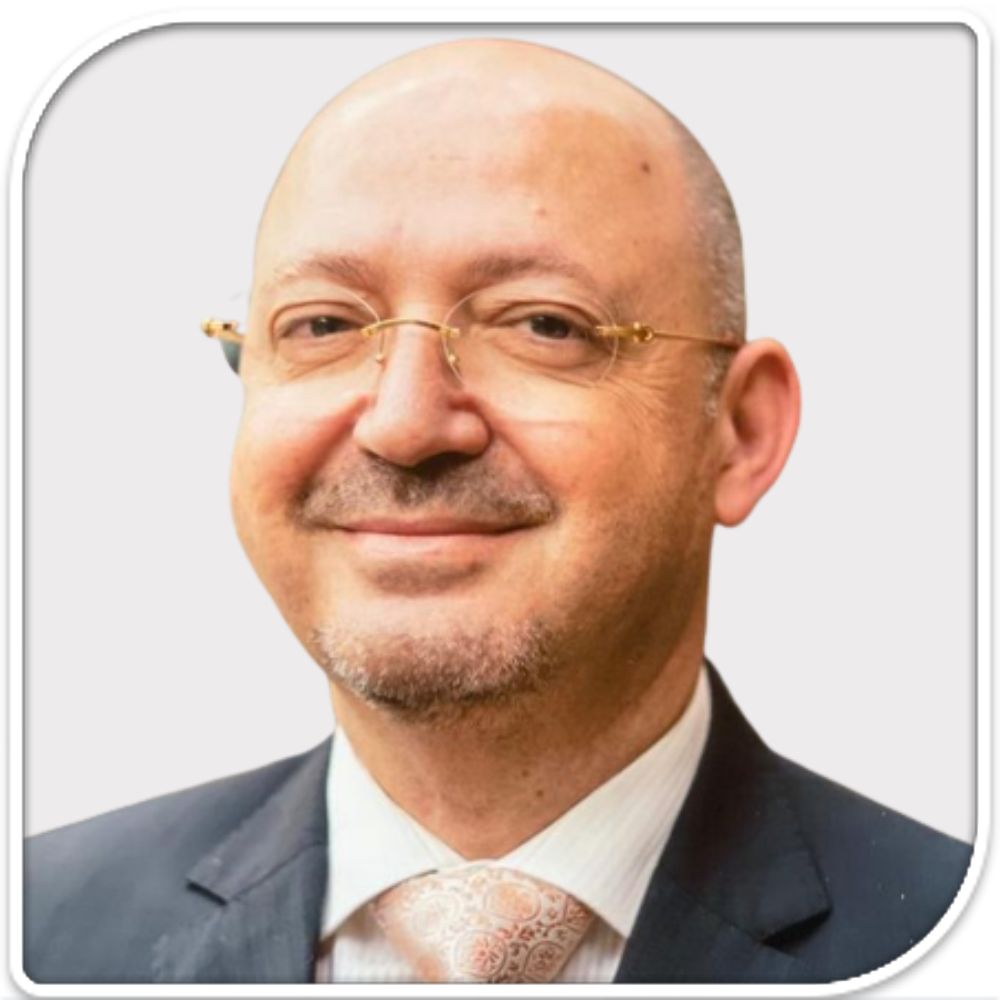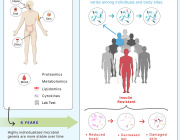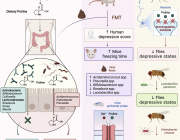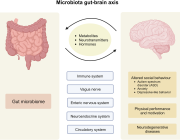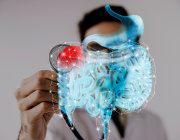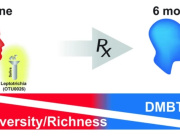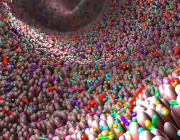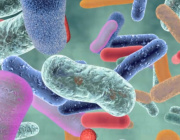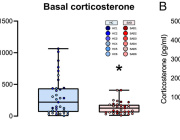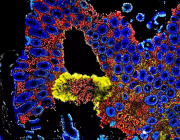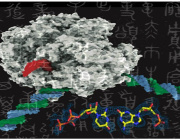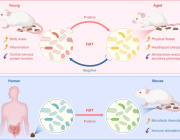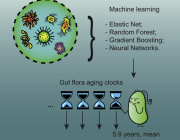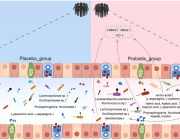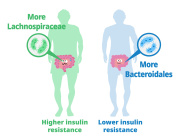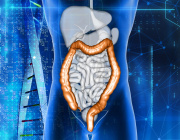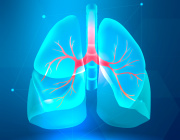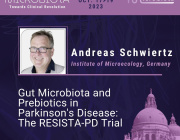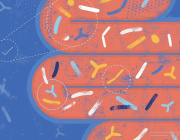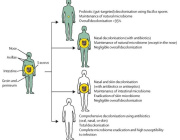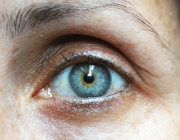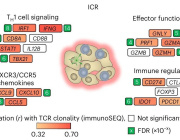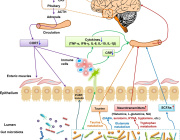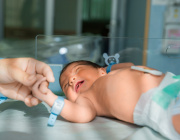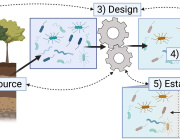Alerts
Diet-microbe interactions and their impact to cardiometabolic health
 Dr. Federico Rey, from University of Wisconsin-Madison, USA will present his study related to "Diet-microbe interactions and their impact to cardiometabolic health" during the 5th Targeting Microbiota World Congress 2017.
Dr. Federico Rey, from University of Wisconsin-Madison, USA will present his study related to "Diet-microbe interactions and their impact to cardiometabolic health" during the 5th Targeting Microbiota World Congress 2017.
According to him: "Whole-grains, vegetables and fruits confer protection against metabolic and cardiovascular disease. The beneficial effects associated with these dietary components are at least in part mediated by end products of gut microbial metabolism, including short chain fatty acids, and metabolites derived from flavonoids, which are found at high levels in these diets. Conversely, gut microbes can also transform otherwise beneficial dietary compounds into metabolites that are harmful for the host [...] We are studying how microbes metabolize nutrients, how they interact with each other as a function of diet and host genotype and how these interactions impact health. I will illustrate our approaches focusing our recent studies aimed at defining the interrelationships between dietary choline, the gut microbiota and the host levels of choline, TMAO and host health."
For more information about Targeting Microbiota Congress, which will be held in Berlin on October 26-27, 2017: www.microbiota-site.com
Hemodynamic effects of hydrogen sulfide, indole and tmao - gut bacteria-derived molecules: the role of the gut-blood barrier

Dr. Marcin Ufnal from Medical University of Warsaw, Poland, will talk about gut bacteria and the role of the gut-blood barrier during 5th Targeting Microbiota World Congress 2017.
"Gut bacteria produces numerous biologically active molecules which cross the gut-blood barrier and target blood vessels, the heart and other organs involved in the regulation of the circulatory system. In our laboratory we have found that hypertension is associated with an increased permeability of the colon to gut bacteria metabolites and that intracolonic administration of several gut bacteria-derived molecules significantly affects arterial blood pressure. In this paper I will present studies showing cardiovascular effects of microbiota-derived compounds such as hydrogen sulfide, indole and methylamines. Besides the effect of cardiovascular diseases on the gut-blood barrier will be discussed."
For more information: www.microbiota-site.com
Cleveland Clinic’s Microbiome Center - Multiple Faculty Positions

The Cleveland Clinic is building a new Center focused on the microbiome, its involvement in human health, and its potential as a target for therapeutic interventions. We are seeking highly qualified investigators who use definitive approaches to understand the nature of the microbiome and its impact on host physiology and disease susceptibility. Basic, translational and clinical investigators who are leaders in the field of microbiome-related research are sought to help build this new center. In addition, highly promising early career investigators with microbiome-related research interests are encouraged to apply. Candidates are also sought with expertise in areas related to microbiology, including, but not limited to, microbe-microbe interactions, gut-organ interactions, microbial enzymology and biochemistry, bacteriophage therapy and gnotobiotics.
Individuals will receive faculty appointments at the appropriate level (Assistant, Associate, or Full) in the Department of Cellular & Molecular Medicine. New recruits will join a highly collaborative environment with outstanding opportunities for interactions with basic and translational investigators, as well as with clinicians from multiple specialties. Outstanding facilities, generous start-up funds, and ongoing operational support will be provided.
The Lerner Research Institute, with nearly 200 independent investigators in 10 departments and an annual budget of >$240 million, has a commitment to excellence in basic, translational and clinical research, with an emphasis on interactive, collaborative research. Faculty are members of the Molecular Medicine Graduate Training Program at Case Western Reserve University School of Medicine, and may join other Programs, providing access to excellent Ph.D. students enrolled in well-developed training programs.
Candidates should submit a complete curriculum vitae and brief statement of research interests by email to: Mr. Michael Piccirillo, piccirm@ccf.org.
The Cleveland Clinic Foundation is an Equal Opportunity/Affirmative Action employer in a smoke/drug free environment
Lactobacilli Modulate Epithelial Cytoprotection through the Nrf2 Pathway
 Prof. Rheinallt M. Jones from Emory University School of Medicine, USA will talk about "Lactobacilli Modulate Epithelial Cytoprotection through the Nrf2 Pathway" during Targeting Microbiota World Congress 2017.
Prof. Rheinallt M. Jones from Emory University School of Medicine, USA will talk about "Lactobacilli Modulate Epithelial Cytoprotection through the Nrf2 Pathway" during Targeting Microbiota World Congress 2017.
"The next phase of microbiome-related studies must focus on the identification of the functional molecular elements that mediate the positive influence of a eubiotic microbiome on health and disease. We demonstrated that contact between the gut epithelia and lactobacilli prompts the rapid accumulation of enzymatically generated reactive oxygen species (ROS) within host cells. ROS have been shown to function as second messengers in many signal transduction pathways via the transient oxidative activity on sensor proteins bearing oxidant-sensitive thiol groups. Examples of redox sensitive proteins sensitive to lactobacilli-induced ROS generation include tyrosine phosphatases that serve as regulators of MAPK pathways, focal adhesion kinase, as well as components involved NF-kB activation. This presentation will focus on the mechanisms whereby probiotic lactobacilli modulate the ROS-sensitive and cytoprotective Nrf2 signaling pathway in the intestine of Drosophila and mammals."
For more information: www.microbiota-site.com
Microbiota and chronic under nutrition: A strategic presentation by Pr François Leulier
 Pr François Leulier from the Institute of Functional Genomique at Ecole Nationale Supérieure de Lyon, France will review the current knowledge and their recent work on the interconnection between malnutrition, intestinal microbiota, juvenile growth and glucose metabolism.
Pr François Leulier from the Institute of Functional Genomique at Ecole Nationale Supérieure de Lyon, France will review the current knowledge and their recent work on the interconnection between malnutrition, intestinal microbiota, juvenile growth and glucose metabolism.
Then Pr Leulier will shed light on our preclinical work using insect and murine models about the functional relevance of interventions using qualified lactobacilli strains to buffer the deleterious effect of malnutrition on juvenile growth and glucose metabolism. Finally, he will illustrate their current understanding of the molecular mechanisms underlying such effects.
For more information: www.microbiota-site.com
Probiotics and bone health: Pr Roberto Pacifici will present the recent scientific advances and perspectives
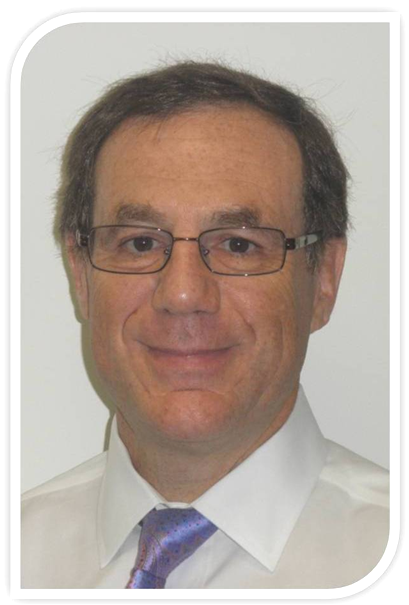
Numerus studies have shown that probiotics have positive effects in bone. The team of Prof. Pacifici and others have reported that probiotics prevent the loss of bone induced by estrogen deficiency. Probiotics prevent the bone loss induced by sex steroid deficiency by activating signaling pathways in enterocytes that promote gut barrier integrity.
During Berlin Microbiota Congress 2017, Prof. Roberto Pacifici from Emory University School of Medicine, USA will present the different pathways which promote gut barrier integrity.
To know more about this presentation, please don't hesitate to participate to Targeting Microbiota World Congress.
Microbiota & medicine of tomorrow by Marvin Edeas, chairman of ISM Scientific Committee
 On behalf of the members of the scientific committee and the President of ISM, we are pleased to inform you about the strategies for our annual meeting: 5th World Congress on Targeting Microbiota, which will be held in Berlin, Germany on October 26-27, 2017.
On behalf of the members of the scientific committee and the President of ISM, we are pleased to inform you about the strategies for our annual meeting: 5th World Congress on Targeting Microbiota, which will be held in Berlin, Germany on October 26-27, 2017.
We took on consideration the conclusion of our past meeting which was held at Institut Pasteur, Paris last October 2016 and the valuable remarks and conclusion presented by Pr Peter Konturek. We decided to underline and target the following strategies:
- Can we modulate the quality and diversity of human microbiota?
- How to induce durable beneficial changes in gut microbiota? What is the importance for prevention and therapy of IBS, IBD, CRC and other GI and liver diseases?
- Where is the red line of the gut microbiota manipulation?
- What are the strategic mediators of gut microbiota?
- How to understand better the role of bacterial metabolites?
- What is the perfect microbiota "signature" and how to use it as a biomarker to "predict" and/or treat many diseases?
- More studies on small intestine microbiota are needed: different composition and more dynamic variation compared with the colon
- What is the impact of non-bacterial components on host health: viruses, protozoa, fungi?
- Challenges of microbiota sequencing and analyzing: How to interprete the results and where is the golden standard?
- Additional studies urgently needed from Asia, Africa and South America
- Challenges of microbiota-host cross-talk understanding and intestinal microbiome signaling to extraintestinal organs
- Exact role in the immune tolerance (allergic diseases)
- Role of lung microbiota (asthma and other chronic diesases of the lung)
- Role of microbiota brain gut axis in functional diseases of GI tract and psychiatric and neurologic diseases
- Impact of gut microbiota on NASH, obesity and diabetes mellitus
- Contribution of gut microbiota to the development of autoimmune diseases
- Role of gut microbiota in the pathogenesis of skin diseases (gut-skin axis)
- Role of gut microbiota in the pathogenesis osteoporosis (gut-bone axis)
- Contribution of gut microbiota to neurodegenerative diseases (Alzheimer‘s disease, Parkinsons‘s disease)
- Microbiota & medicine of tomorrow: Development of effective therapeutic strategies to manipulate the gut microbiota
- Fecal Microbiota Transplantation (attributes of the optimal donor, optimal mode of delivery, designed microbiota-based capsule)
- New pre- and probiotics (single vs consortium)
- Bacterial metabolites: the pharmaceutical challenge
Of course, we are open to any new ideas, suggestions and topics from all of you.
All our best.
Pr Marvin Edeas
Chairman of ISM Scientific Committee
Cochin Institute-INSERM 1016
CNRS UMR8104
University Paris Descartes
Paris, France
Steigenberger Hotel Berlin will host Targeting Microbiota World Congress 2017 and will offer you privileged rates for your early booking!

Steigenberger Hotel Berlin
Los-Angeles-Platz 1 | 10789 Berlin, Germany
The Steigenberger Hotel Berlin is located in the center of the City West – only a 5-minute walk from Kurfürstendamm. The Brandenburg Gate, the Reichstag and Checkpoint Charlie can be reached within 20 to 25 minutes using public transport.
You'll be amazed by the outstanding design when you enter any of the 398 rooms and suites. Equipped with air-conditioning, minibar, Nespresso coffee machine, flat-screen TV with Sky and safe: you're sure to enjoy a relaxing stay in Berlin.
 |
 |
Book your room at Steigenberger Hotel Berlin with special rate before September 25!
You can select between two categories:
 |
 |
- Superior Room
Feel at home straightaway in our 22 to 24sq.m. Superior Rooms with a view to the hustle and bustle between Kurfürstendamm and Los Angeles Square or to the quiet inner courtyard.
Fully equipped bathroom with bathtub or shower, individually controlled air conditioning, complimentary Wireless High Speed Internet (HSIA), complimentary bottle of mineral water during the stay, complimentary tea and coffee making facilities, flat screen.
EUR 139.00 per room and night, single occupancy, included breakfast
EUR 159.00 per room and night, double occupancy, included breakfast
- Deluxe Room
The Deluxe Rooms with a size of 24 to 26sq.m. on the 5th and 6th floor are rooms for relaxation with a modern design and a view to the quietly situated park of the Los Angeles Square.
Fully equipped bathroom with bathtub, bathrobe & slippers, individually controlled air conditioning, complimentary Wireless High Speed Internet (HSIA), daily complimentary bottle of mineral water, complimentary tea and coffee making facilities, Nespresso machine, welcome treatment from the General Manager, discount voucher for shopping at the Galleries Lafayette, daily newspaper, turn down and shoe shine service, large flat screens.
EUR 169.00 per room and night, single occupancy, included breakfast
EUR 189.00 per room and night, double occupancy, included breakfast
|
To book your room with special rate, please click on this link. If you would like to extend your stay before October 25 or after October 27 (subject to availability), please complete the form available here and send it directly to the hotel. You can also contact directly the hotel at provide the code "MICROBIOTA 2017". |
The 2016 is approaching to the end and a fantastic year will come...
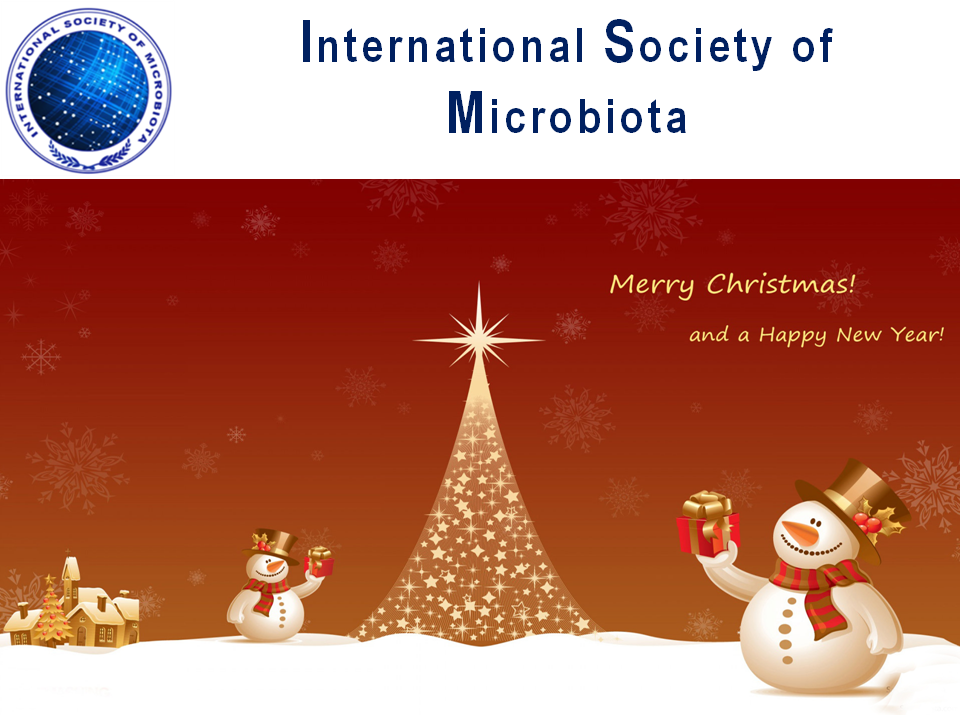 Dear estimated Collegues,
Dear estimated Collegues,
The 2016 is approaching to the end and a new fantastic year will come. The 2016 sees in pubmed the amazing amount of more than 4.000 articles regarding the Microbiota….the meaning is that we are on the right way!! Indeed, more and more outstanding experts are continuously involved in the microbioma study and the interest increases day by day, especially in the biomedical field.
Looking at this, we are thinking at the new preliminary program for the next 2017 in order to involve the best scientists around the world, and especially those who are also able to create networks and share informations.
Here further topics we should also focus our attention for the next agenda on 2017:
- Nasal-oral-bronchial microbioma: any markers for healthy?
- Breast microbioma: which future for our children?
- Vaginal microbioma: still lactobacilli?
- Gut microbioma: transplantation, diseases and future evolutions
- Skin microbioma: intestinal or topical solution?
- Organs-gut axes: only brain?
- Technical and bioinformatics tools for studying microbioma
- Guidelines and Miscellanea: right samples for the right microbioma
We hope of course to receive more suggestions and especially productive applications for participating to the 5th International Congress of Microbiota.
Wishing you and you families a prosperous and fruitful new years, best regards and see you soon in Paris.
Prof. Lorenzo Drago
President of ISM
Special Session on Fecal Microbiota Transplantation: All you need to know from A to Z about FMT
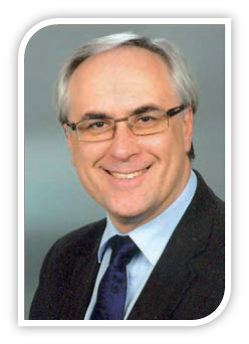
This special session will be animated by Pr Peter Konturek, from the Teaching Hospital of the University of Jena, Germany.
Who is Pr. Peter Konturek?
Pr Harald Weiner from Harvard University will introduce Targeting Microbiota 2016
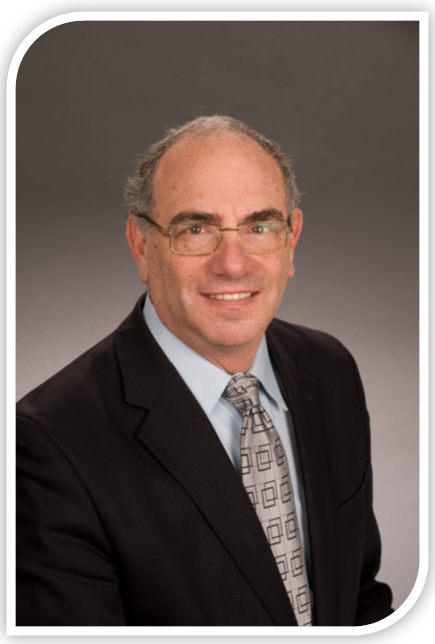 The Scientific Committee is honoured to welcome Pr Harald Weiner, from Harvard University, USA to introduce the 4th World Congress on Targeting Microbiota to be held at Institut Pasteur, Paris on October 17-19, 2016.
The Scientific Committee is honoured to welcome Pr Harald Weiner, from Harvard University, USA to introduce the 4th World Congress on Targeting Microbiota to be held at Institut Pasteur, Paris on October 17-19, 2016.
Strategic questions by Marvin Edeas, from Institut Cochin, INSERM U1016
During Targeting Microbiota 2016 World Congress which will be held from October 17 to 19, at Pasteur Institute, Paris, more than 100 communications (oral & poster) will be presented during three days.
With more than 400 attendees coming form academies and industries, we asked Marvin Edeas, from Institut Cochin, INSERM U1016, University Paris Descartes and as chairman of the scientific committee of Targeting Microbiota 2016 to comment about the strategic points and questions which will be discussed during Targeting Microbiota 2016.
In order to have a better picture of microbiota 2016 advances, we need to answer many questions:
- Can we modulate the quality and diversity of our microbiota?
- Where is the red line of the gut microbiota manipulation?
- What are the strategic mediators of gut microbiota?
- What is the perfect microbiota "signature" and how to use it as a biomarker to "predict" and/or treat many diseases?
- It is very easy today to analyze and study the microbiota, however it is very difficult to interpret the results. How the skills of bioinformaticians will lead us to a "golden standard"?
- Can policy makers clarify the health claims and fecal microbiota transplantation regulation?
Marvin Edeas concluded: I wish that we have a strong discussion between all the actors to progress in our strategies to predict and treat many microbiota related diseases.
For more information about Targeting Microbiota 2016: www.microbiota-site.com
Sex steroid deficiency-associated bone loss is microbiota dependent and prevented by probiotics
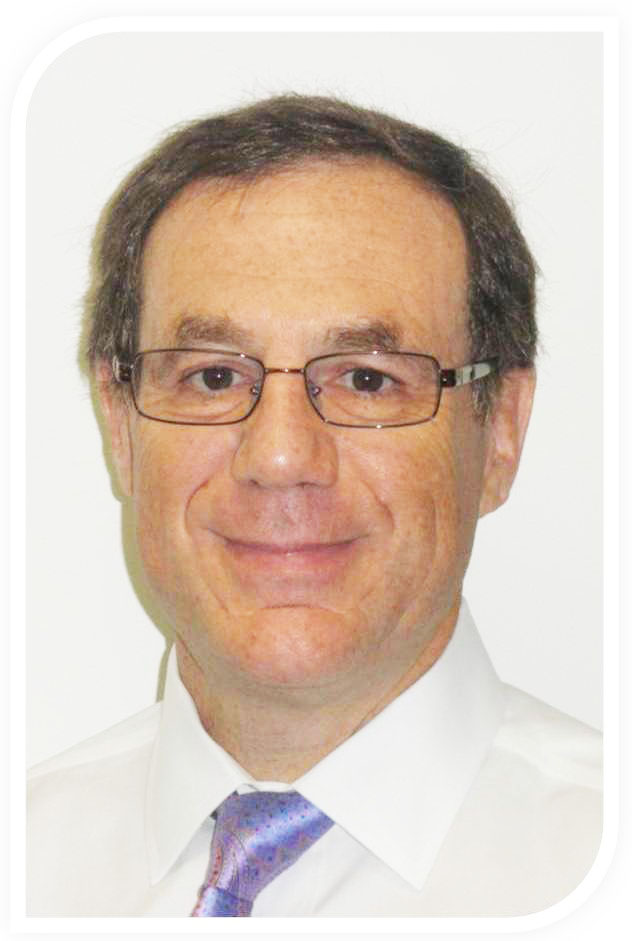
According Pr Roberto Pacifici, from Emory University School of Medicine, USA: "A eubiotic microbiota influences many physiological processes in the metazoan host, including development and intestinal homeostasis. Here (in our study), we have shown that the intestinal microbiota modulates inflammatory responses caused by sex steroid deficiency, leading to trabecular bone loss. [...] In germ-free (GF) mice, sex steroid deficiency failed to increase osteoclastogenic cytokine production, stimulate bone resorption, and cause trabecular bone loss, demonstrating that the gut microbiota is central in sex steroid deficiency–induced trabecular bone loss. [...] Together, these data highlight the role that the gut luminal microbiota and increased gut permeability play in triggering inflammatory pathways that are critical for inducing bone loss in sex steroid–deficient mice. Our data further suggest that probiotics that decrease gut permeability have potential as a therapeutic strategy for postmenopausal osteoporosis."
The scientific committee of the International Society of Microbiota is honoured to welcome Pr Pacifici during the 4th World Congress on Targeting Microbiota to be held on October 17-19, 2016 at Institut Pasteur, Paris.
For more information and registration: www.microbiota-site.com
Marvin Edeas, Chairman of ISM
Lung microbes and their effect on asthma: A new strategic topic which will be discussed during Targeting Microbiota 2016
During the 4th Congress on Targeting Microbiota, Dr. Muriel Thomas from INRA Jouy, France will be presenting the topic of "Lung microbes and their effect on asthma".
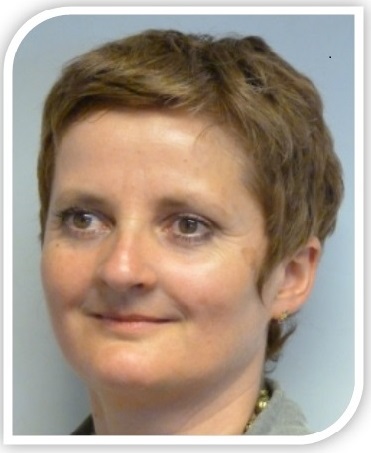
The following main questions will be anserwed during the congress :
- What is the Influence of germ free status on lung physiology in mice?
- Can we isolate viable and functional bacteria in the lung at steady state or during asthma ?
- Do the Lung bacterial strains display specific immunoregulatory properties ?
- Do the lung strains modulate a pathology like asthma in mice neonates ?
The research highlights:
- • The absence of microbes affects lung physiology and immunity
- • Lung primocolonization is a highly susceptible period for asthma
- • Lung bacterial strains display ex vivo and in vivo immunoregulatory properties
- • The equilibrium between protective and exacerbating strains modulate asthma feature
If you are interested to know more about Dr Thomas' researches, do not hesitate to join the participants by registering here: www.microbiota-site.com
Marvin Edeas Chairmen of ISM
More than 350 attendees participated during Targeting Microbiota Three-day congress
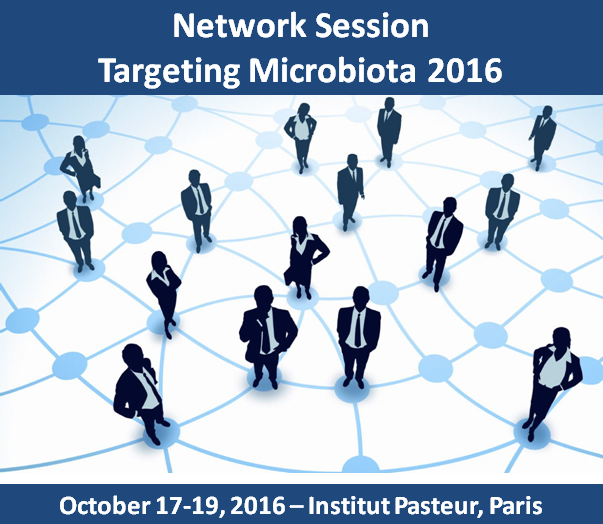
Targeting Microbiota 2016 was the perfect opportunity to meet all the leaders in the field of microbiota. If you are interested to contact specific persons, please let us informed and we will organize your exchanges.
Tools and approaches to achieve strain resolution analyses of the microbiota

Dr. Knut Rudi, from the Norwegian University of Life Sciences will present his research about the "Tools and approaches to achieve strain resolution analyses of the microbiota". He will specially highlight the role of the gut microbiota mobilome and the potential of pathogen transmission of antibiotic resistance during the 4th World Congress on Targeting Microbiota to be held on October 17-19 at Institut Pasteur.
During his presentation, Dr Rudi will answer the following questions:
- How can we determine the number of bacterial strains colonizing the human gut?
- What are the main vectors for horizontal gene transfer of antibiotic resistance in the gut?
- What are the taxonomic associations for horizontal gene transfer in the gut?
If you would like to know more about Dr. Knut Rudi' study, don't hesitate and come.
For more information: www.microbiota-site.com
Moody microbes or fecal phrenology: what do we know about the microbiota-gut-brain axis

During the 4th World Congress on Microbiota, Dr. Paul Forsythe from the McMaster University of Canada will be speaking about his researches about the moody microbes or fecal phrenology.
According to Dr Forsythe, the microbiota-gut-brain axis is a term that covers a broad set of functions and interactions between the gut microbiota, the endocrine, immune and nervous systems, and the brain.
At first sight it appears gut microbes are largely responsible for the development, maturation and adult function of the enteric nervous system as well as the blood brain barrier, microglia and many aspects of the central nervous system structure and function. Communication between gut and brain depends on both humoral and nervous connections. Since such communication is bi-directional and occur through complex pathways, it is perhaps not surprising that while striking observations have been reported, they have often either not yet been reproduced or their replication by others has not been successful. Given the state of the art in this exploding field and the hopes, as well as the skepticism, which have been engendered by its popular appeal, this presentation will explore recent examples of evidence in rodents and data derived from studies in humans, which offer insights as to pathways involved.
For more information about Targeting Microbiota World Congress and Dr Forsythe's presentation: www.microbiota-site.com
Marvin Edeas, Chairman of ISM
Systemic immunity against selected gut microbes protects from atherosclerosis and wetsern-diet-related inflammation
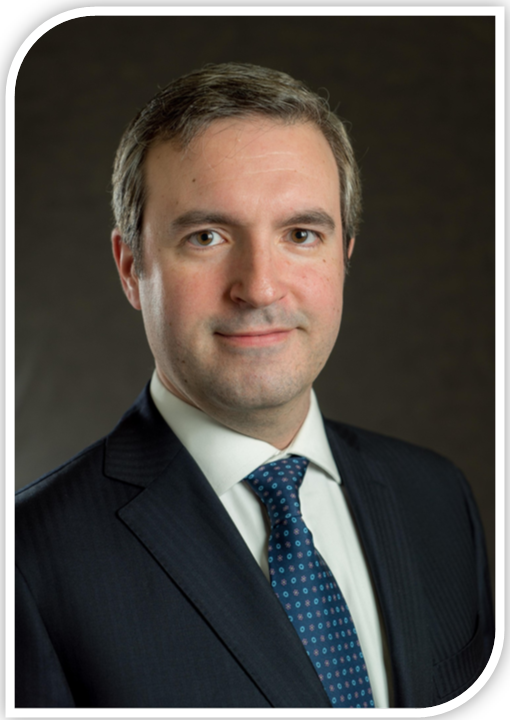 Common features of immune-metabolic and inflammatory diseases such as metabolic syndrome, diabetes, obesity and cardiovascular diseases are an altered gut microbiota composition and a systemic pro-inflammatory state. In this publication, Pr Canducci and his team demonstrate that active immunization against the outer membrane protein of bacteria present in the gut enhances local and systemic immune control via apoE-mediated immune-modulation. Reduction of western-diet-associated inflammation was obtained for more than eighteen weeks after immunization. Immunized mice had reduced serum cytokine levels, reduced insulin and fasting glucose concentrations; and gene expression in both liver and visceral adipose tissue confirmed a reduced inflammatory steady-state after immunization. Moreover, both gut and atherosclerotic plaques of immunized mice showed reduced inflammatory cells and an increased M2 macrophage fraction.
Common features of immune-metabolic and inflammatory diseases such as metabolic syndrome, diabetes, obesity and cardiovascular diseases are an altered gut microbiota composition and a systemic pro-inflammatory state. In this publication, Pr Canducci and his team demonstrate that active immunization against the outer membrane protein of bacteria present in the gut enhances local and systemic immune control via apoE-mediated immune-modulation. Reduction of western-diet-associated inflammation was obtained for more than eighteen weeks after immunization. Immunized mice had reduced serum cytokine levels, reduced insulin and fasting glucose concentrations; and gene expression in both liver and visceral adipose tissue confirmed a reduced inflammatory steady-state after immunization. Moreover, both gut and atherosclerotic plaques of immunized mice showed reduced inflammatory cells and an increased M2 macrophage fraction.
These results will be presented during Targeting Microbiota World Congress, by Pr Filippo Canducci from San Raffaele Scientific Institute IRCCS, Italy, to be held at Institut Pasteur on October 17-19, 2016.
For more information: www.microbiota-site.com
The first Symposium dedicated to Skin Microbiota gathered around one hundred specialists on skin in Paris
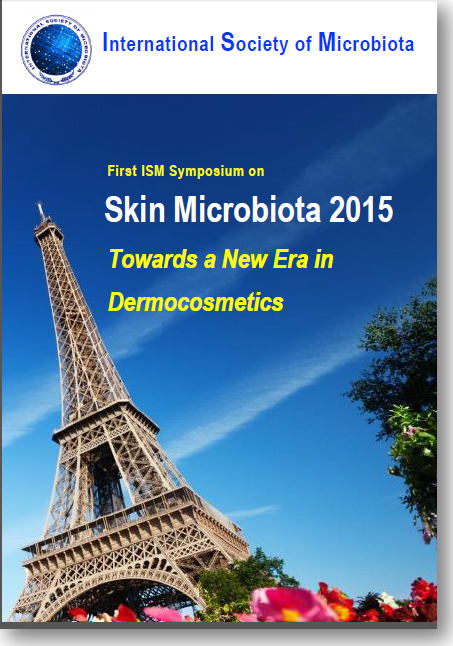 The first symposium on Skin Microbiota held on June 17 was a huge success. Around one hundred participants involved in skin microbiota gathered in Paris and discussed the recent scientific advances and innovations in the field of Skin Microbiota.
The first symposium on Skin Microbiota held on June 17 was a huge success. Around one hundred participants involved in skin microbiota gathered in Paris and discussed the recent scientific advances and innovations in the field of Skin Microbiota.
Two scientists were awarded for their scientific contribution:
Dr Tewes Tralau presented a talk about "Insights on Human Microbiota & Focus on Skin Microbiota"
Dr Chris Callawaert presented a talk about "The Textile and Armpit Microbiome in Relation to Body Odor and the Influence of Deodorants and Antiperspirants"
To access to the program of Skin Microbiota 2015, please click here.
To access to the pictures, please click here.
To order the abstracts book, please contact us.
Microbiota and Colorectal Cancer: ISM is honoured to welcome Pr Iradj Sobhani as distinguished speaker
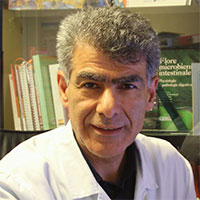 As Editor-in-Chief of the Journal of the International Society of Microbiota, Pr Iradj Sobhani was invited by the scientific committee to give a strategic presentation about "Anti cancer chemotherapy and Microbiota changes in Colorectal cancer" during the 4th World Congress on Targeting Microbiota to be held at Institut Pasteur on October 17-19, 2016.
As Editor-in-Chief of the Journal of the International Society of Microbiota, Pr Iradj Sobhani was invited by the scientific committee to give a strategic presentation about "Anti cancer chemotherapy and Microbiota changes in Colorectal cancer" during the 4th World Congress on Targeting Microbiota to be held at Institut Pasteur on October 17-19, 2016.
According Pr Sobhani: "A colon cancer related dysbiosis has been reported and specific bacteria from either stool Microbiota or gut Microbiota have been characterized. Whether human microbiome might impact response of tumour to therapies is now a crucial issue. Several preliminary studies conducted in animals as well as in human support this hypothesis. W’ll summarize these data and give an overview on our preliminary pilot study under Folfox therapy."
For more information about the congress: www.microbiota-site.com
Marvin Edeas - Chairman of the scientific committee
Olfaction & Microbiota: What is the impact of microbiota on odorant detection and olfactory preferences in mice?
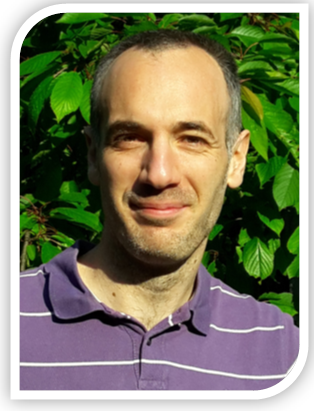
Dr Nicolas Meunier from Neurobiologie de l'Olfaction et Blosenseur (NBO) at INRA, France is invited to give a presentation about the impact of microbiota on odorant detection and olfactory preferences in mice.
During his presentation, Dr Meunier will answer the following questions:
- Does the absence of microbiota alter the olfactory epithelium development?
- Is the detection of odorant different in germfree mice?
- Does the microbiota alter the interest of mice to odours?
If you are interested to know more about the olfaction and microbiota, don't hesitate to register for Targeting Microbiota World Congress.
Targeting Microbiota 2016
www.microbiota-site.com
More Articles...
- What is the gut microbiota-bone axis? Recent advances and perspectives
- The butyrate revival. Short chain fatty acids as key mediators of gut microbiota
- Transition from an infant- to adult-like gut microbiota – where do the bacteria come from?
- The challenge of the bioinformatics, integrating clinical and microbiome data will be discussed during Targeting Microbiota Congress 2016







